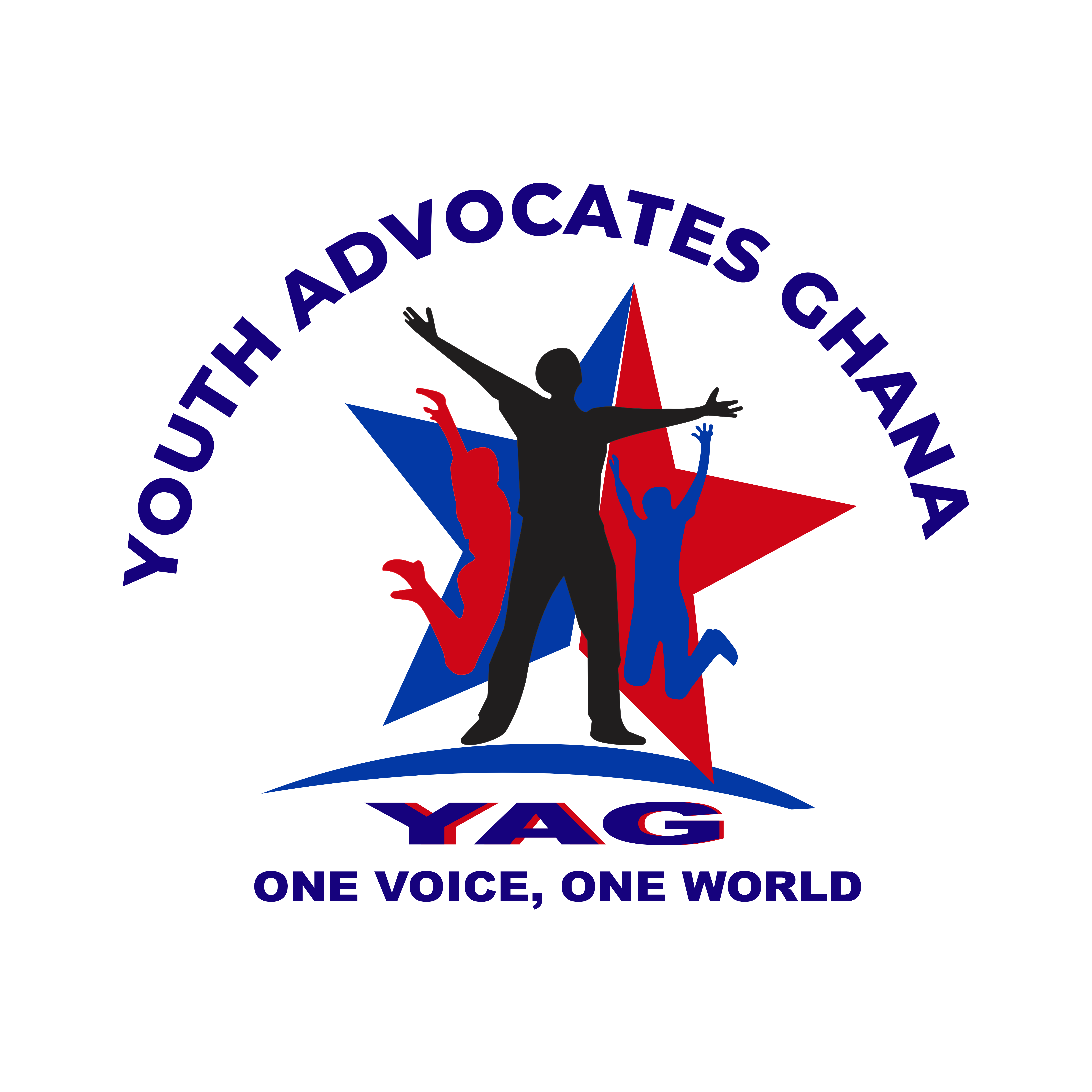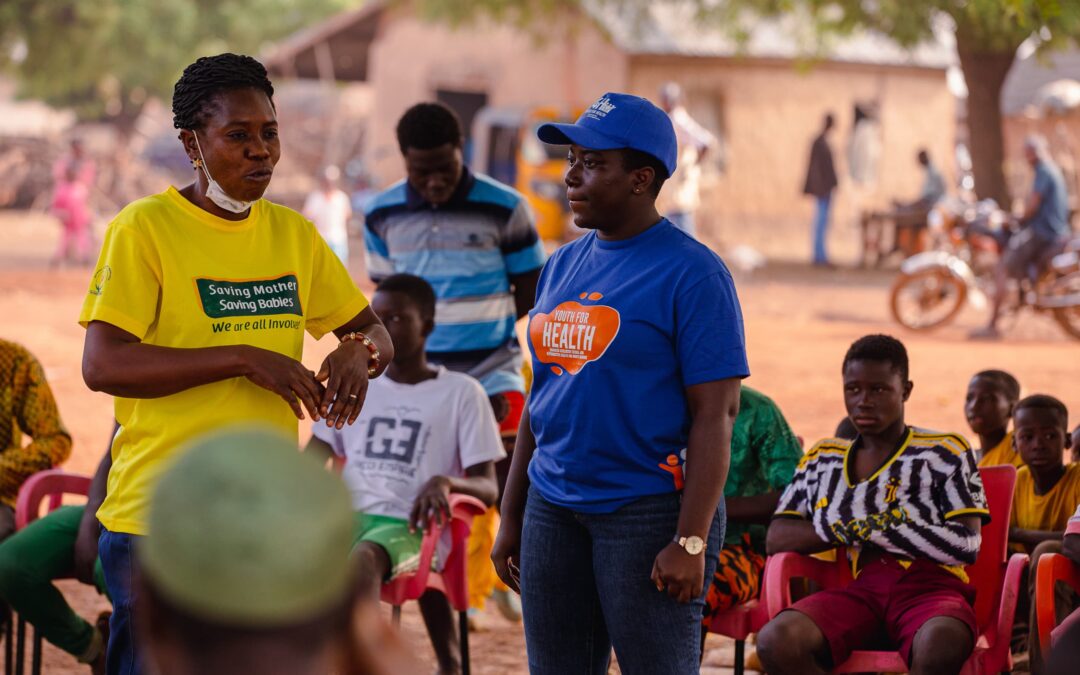A Silent Crisis: Reproductive Health in Northern Ghana and the Path Forward
In the villages of Northern and Upper East Ghana, women and girls wake up each day facing a silent crisis. The right to make decisions about their own bodies is out of reach – not because of law, but because of culture, misinformation, and systemic neglect. (UNFPA, 2022). For many, accessing contraception is not a choice but a battle against tradition, stigma, and a lack of healthcare access (Ghana Health Service, 2020).
Despite Ghana’s commitment to universal health coverage, reproductive health remains a contentious issue, shaped by deep-rooted cultural norms and weak policy implementation. Recent data from GHS (2023) reveals a stark reality: only 17% of women in Northern Ghana use modern contraceptives, compared to 26% nationally. Teenage pregnancies are also alarmingly high, with over 14,000 cases recorded in the Northern Region alone in 2023 (GHS, 2023).
A recent engagement by Youth Advocates Ghana with over 850 community members- spanning weavers, hairdressers, farmers, and informal savings associations revealed the stark realities of misinformation, cultural constraints, and systemic gaps in reproductive health education. While these findings highlight the systemic gaps in reproductive health education, they also reveal a deeper issue: entrenched cultural and religious beliefs that continue to control women’s reproductive choices, limiting their autonomy over their own bodies.
In many households, husbands and traditional leaders hold decision-making power over contraception use. “Many women in these communities are forced to seek permission from their husbands before accessing family planning services,” says Mohammed Numbo Fathiyat, a Sexual and Gender Based Violence advocate. “For some, this consent never comes, leaving them with no control over their reproductive choices.”
Yet, some men are stepping up as allies in reproductive health decisions.
“I am fully committed to supporting my partner by accompanying her to the health facility for reproductive health services. I encourage all men to stand by their partners and actively support them in accessing family planning services” Simon Abangbase Awaaneygo, Kodorogo community, Upper East Region.
Misinformation remains a significant barrier, discouraging women from using contraceptives. Many believe that family planning leads to infertility, excessive bleeding, or even death (GHS, 2023). Some men even hold the misconception that they can ‘neutralize’ the effects of contraception.
“The hesitancy among young women to access family planning services often stems from negative stories shared by their friends. After today’s insightful discussion facilitated by Youth Advocates Ghana and Ghana Health Service, I urge them to visit health facilities to seek accurate information and proper guidance, instead of relying on hearsay” Madam Regina Ayamdoo, Textiles Hand Weavers Association, Bongo District.
The Ghana Health Service reports that 1 in 3 women in the Northern Region lacks accurate contraceptive information. A distressing revelation from the discussions was the prevalence of marital conflict over family planning decisions. Many women reported that seeking their husband’s consent often led to disputes, with men citing concerns over contraceptive side effects affecting intimacy.
“Family planning is crucial because, in our community, we’ve seen fathers abandon their wives and children after childbirth. To prevent such hardships and avoid school dropout, young people who are sexually active should consider family planning.” Christable Kagba Bisiminle, Young Person, Nnalog Community, Northern Region.
Key recommendations:
A rights-based approach to reproductive health is needed. Governments should adopt policies that empower women to make independent reproductive choices while encouraging joint decision-making in families. Training programs on sexual rights and respectful communication must be embedded in national family planning strategies (UN Women, 2021)
The Ministry of Gender, Children, and Social Protection (MoGCSP) must launch a Faith-Based Family Planning Initiative that engages religious and community leaders in promoting reproductive rights. In Senegal, faith leaders integrate family planning into religious teachings, leading to a significant increase in contraceptive use (Population Reference Bureau, 2020).
The Ghana Education Service (GES) must integrate age-appropriate reproductive health education into school curricula. Rwanda’s model, which has significantly reduced misinformation and teenage pregnancies, offers a blueprint for Ghana (UNESCO, 2021).
The Ghana Health Service (GHS) should expand digital and radio-based SRH campaigns in local languages to combat misinformation at the grassroots level. The Health Ministry must establish Youth-Friendly Health Centers in district hospitals and clinics. These centers should offer free contraceptives, peer education, and counseling to reduce stigma and encourage youth engagement.
The government must ensure the sustainability of SRHR projects and initiatives. This requires multi-stakeholder collaboration. Government, civil society organizations (CSOs), and private sector partners must work together to secure long-term financial and technical support for RHE programs. Sustainable financing mechanisms such as public-private partnerships, social enterprises, and donor-backed community health funds should be developed to ensure uninterrupted access to SRHR services.
Additionally, robust national data collection and monitoring mechanisms should be established to assess the impact of SRHR policies and hold stakeholders accountable.
Youth Advocates Ghana calls on policymakers, healthcare providers, traditional and religious leaders, and global stakeholders to take decisive action in dismantling the systemic barriers that hinder access to reproductive health education and services.
If Ghana fails to act now, the cycle of unintended pregnancies, gender inequality, and economic hardship will persist.
By: Youth Advocates Ghana.


